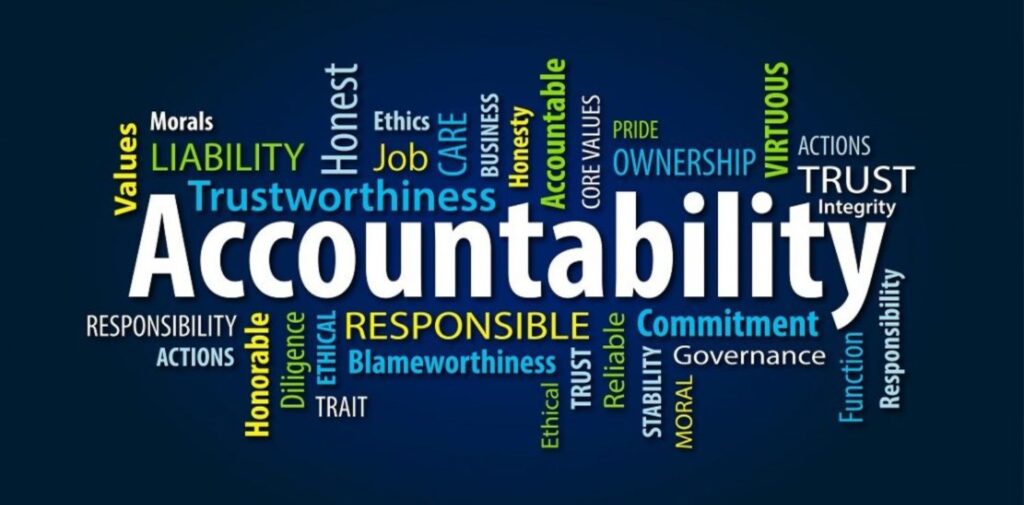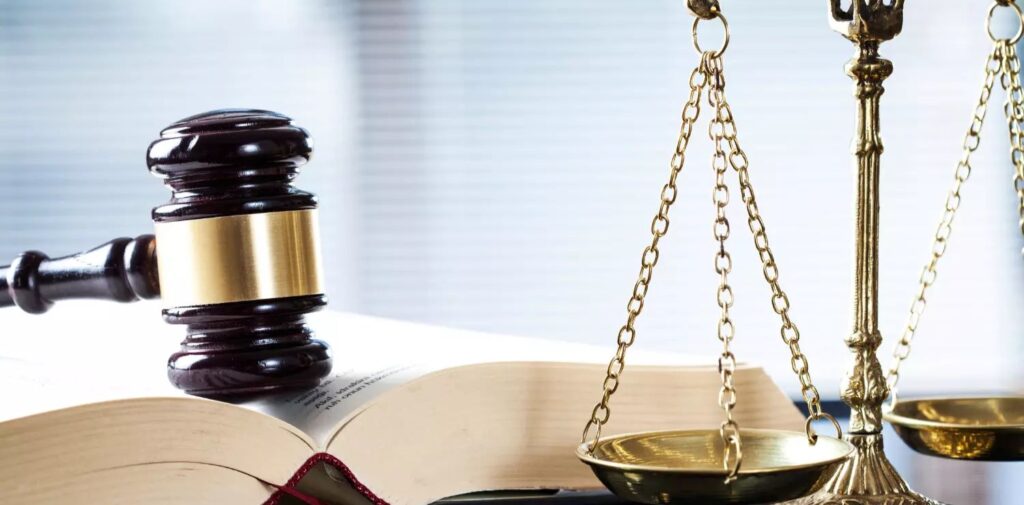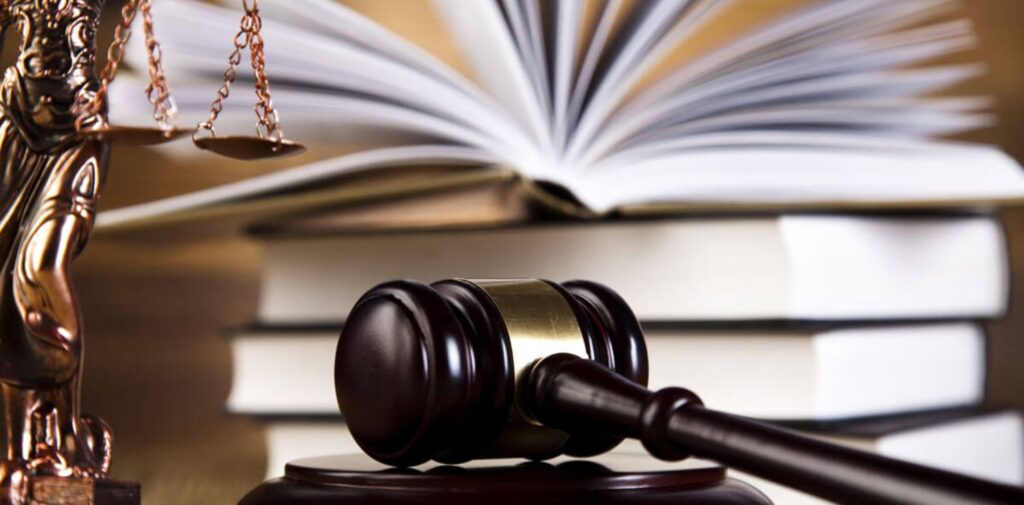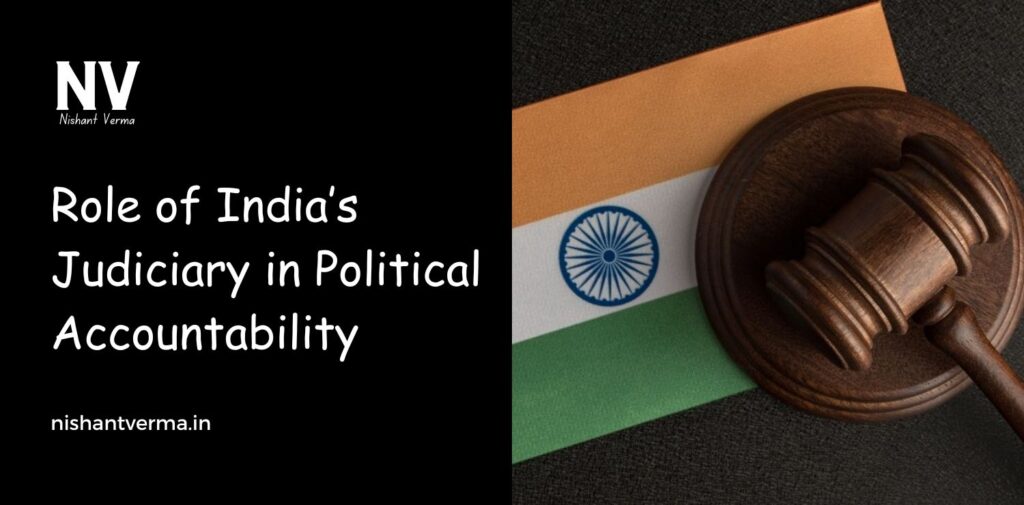In a democratic country like India, the government is elected by the people to serve them and take care of the country’s development. However, it is important to ensure that the people in power do not misuse their authority. This is where the judiciary (the system of courts) plays a very important role. The judiciary acts as a guardian of the Constitution, ensuring that the laws are followed and that the government stays accountable to the people.
In this article, we will understand how India’s judiciary works to keep the government and its leaders accountable, and why this is important for the country’s democracy.
What is Political Accountability?
Before we dive into the role of the judiciary, let’s first understand what political accountability means. Political accountability refers to the idea that government officials and leaders must be responsible for their actions and decisions. They should not misuse their power for personal gain, and if they do, they must be held responsible.
In India, the Constitution gives the government the power to make decisions, but it also ensures that there are systems in place to prevent abuse of that power. One of the key ways to ensure political accountability is through the judiciary.Which in India is independent, which means that it can make decisions without being influenced by the government or any other political party.

The Role of the Judiciary in India
India’s judiciary is made up of a system of courts, with the Supreme Court being the highest court in the country. Below the Supreme Court, there are High Courts in each state, and below them are the lower courts (District Courts and Magistrate Courts) that handle day-to-day legal cases.
The role of the judiciary is to interpret laws, solve disputes, and protect the rights of citizens. It is important for the it to be fair and impartial, meaning that it does not take sides based on political views or pressures.
How Does the Judiciary Ensure Political Accountability?
The judiciary plays several key roles in making sure that the government stays accountable. Let’s look at some of the important ways it helps in this process.
1. Judicial Review
One of the most important powers of the judiciary in India is the power of judicial review. This means that the courts can review the actions and decisions of the government to ensure they are in line with the Constitution. If the government makes a law or takes an action that goes against the Constitution, the judiciary has the power to strike it down.
For example, if the government tries to pass a law that violates the fundamental rights of the people, It can declare it unconstitutional. This ensures that the government cannot take away the rights of citizens or make unfair decisions.
2. Protecting Fundamental Rights
The Constitution of India guarantees certain fundamental rights to all its citizens. These rights include the right to freedom of speech, the right to equality, and the right to life and personal liberty. If any government official or leader violates these rights, the judiciary can step in and protect them.
It ensures that the government remains accountable to the people by hearing cases where individuals or groups claim their rights have been violated. Courts can issue orders and judgments that force the government to stop any unlawful actions. This makes sure that the government does not become too powerful or act against the will of the people.
3. Public Interest Litigation (PIL)
Public Interest Litigation, or PIL, is a tool that allows ordinary citizens to approach the courts for justice on behalf of a larger public cause. This means that even if a person is not directly affected by an issue, they can file a petition in court if they believe it harms the public interest.
Through PIL, the judiciary helps in holding the government accountable for issues like corruption, environmental protection, and human rights violations. For example, if the government fails to take action on environmental pollution, citizens can approach the judiciary through PIL, and the court can order the government to take steps to address the problem.
PIL has been an important way for the judiciary to ensure that the government works in the best interest of the people and does not ignore public welfare.
4. Ensuring Transparency and Accountability
In addition to its power of judicial review, it also helps ensure transparency and accountability in government actions. Sometimes, the government may try to hide information or make decisions without consulting the public. In such cases, it can order the government to make information public or explain its decisions.
For example, if there is a corruption case or if government officials are accused of wrongdoing, the judiciary can ensure that investigations are conducted fairly and transparently. Courts can also direct the government to take actions to prevent corruption or other illegal activities.
5. Controlling Corruption
Corruption is a major issue in many countries, including India. Corruption happens when public officials use their position for personal gain, which harms the country and its citizens. The judiciary plays a major role in holding corrupt politicians and officials accountable.
When corruption cases are brought to the court, it is responsible for ensuring that the guilty are punished. It does not matter how powerful or influential a person is; if they are guilty of corruption, the courts can order their arrest and prosecution.
The judiciary has been important in punishing corrupt politicians and officials and sending a strong message that no one is above the law. This helps to build trust in the system and encourages politicians to act with integrity.

Famous Cases Where the Judiciary Held the Government Accountable
There have been several important cases where the judiciary in India played a key role in holding the government accountable. Here are a few examples:
1. The Kesavananda Bharati Case (1973)
This case was a landmark decision in which the Supreme Court of India established the basic structure doctrine. The government at the time wanted to change the Constitution, but the court ruled that certain fundamental principles of the Constitution, such as democracy, federalism, and the rule of law, cannot be changed by any law or amendment. This ruling limited the power of the government to make arbitrary changes to the Constitution.
2. The Right to Information (RTI) Case (2005)
In this case, the Supreme Court ruled that the government must make information about its decisions and activities available to the public. This judgment led to the creation of the Right to Information Act, which allows citizens to request information from the government. This ensures that the government remains transparent and accountable to the people.
3. The 2G Spectrum Scam Case (2012)
This was a major corruption case involving politicians and officials accused of illegally selling the country’s mobile spectrum to private companies. The judiciary played a critical role in investigating the case and punishing the guilty. Several high-ranking officials and politicians were involved in the scam, and the courts ensured that justice was served, sending a strong message against corruption.

Conclusion
The judiciary plays a crucial role in ensuring political accountability in India. It acts as a check on the government’s power and makes sure that the government does not misuse its authority. Through tools like judicial review, PIL, and ensuring transparency, the judiciary helps maintain the rule of law and protect the rights of citizens.
By holding politicians and government officials accountable, the ensures that the government serves the people and acts in their best interests. This is a vital part of any democracy, and in India,It continues to play an important role in making sure the government remains responsible for its actions.
In the end, the independence and fairness of the are what make India’s democracy strong and trustworthy for its people.




